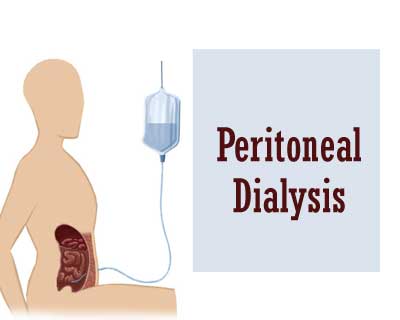- Home
- Editorial
- News
- Practice Guidelines
- Anesthesiology Guidelines
- Cancer Guidelines
- Cardiac Sciences Guidelines
- Critical Care Guidelines
- Dentistry Guidelines
- Dermatology Guidelines
- Diabetes and Endo Guidelines
- Diagnostics Guidelines
- ENT Guidelines
- Featured Practice Guidelines
- Gastroenterology Guidelines
- Geriatrics Guidelines
- Medicine Guidelines
- Nephrology Guidelines
- Neurosciences Guidelines
- Obs and Gynae Guidelines
- Ophthalmology Guidelines
- Orthopaedics Guidelines
- Paediatrics Guidelines
- Psychiatry Guidelines
- Pulmonology Guidelines
- Radiology Guidelines
- Surgery Guidelines
- Urology Guidelines
Two Classes of Medications Associated with Similar Reduction In CVD Risk in Peritoneal Dialysis Patients

Los Angeles : With cardiovascular disease being the No. 1 cause of death in end-stage kidney disease patients on peritoneal dialysis, a new study examined two classes of medications commonly prescribed to prevent cardiovascular events in these patients and found no significant difference in outcomes. The study, published online in the Journal of Nephrology, noted that the two classes of medications, angiotensin-converting enzyme inhibitors (ACEI) and angiotensin-II receptor blockers (ARB), have slightly different mechanisms and could theoretically have differing outcomes.
The researchers also noted that previous studies had suggested that “ACEI may lead to a kinin-mediated increase in insulin sensitivity not seen with ARB. This could potentially lower the cardiovascular risk in patients on peritoneal dialysis because they are exposed to high glucose loads [in their dialysate] that may lead to insulin resistance and its associated cardiovascular risk.”
“Despite this suggestion, we could find no previous study that had compared these two classes of medications head-to-head in patients on peritoneal dialysis to see if ACEI might indeed be better than ARB in this patient population,” said Jenny Shen, MD, an LA BioMed lead researcher and corresponding author of the study. “Our study found no significant difference in the effectiveness of the two classes of medications. Although randomized clinical trials would be needed to confirm these observational results, our study suggests that physicians can use ACEI and ARB interchangeably to prevent cardiovascular risks in their peritoneal dialysis patients.”
Using a national database, the U.S. Renal Data System, the researchers surveyed records for all Medicare Part D (a federal prescription drug program) patients who underwent peritoneal dialysis from 2007 to 2011. Of those, they found 1,892 patients using either drug class. Surveying their medical records, the researchers said they found no difference in cardiovascular events or deaths between the users for each medication.

Disclaimer: This site is primarily intended for healthcare professionals. Any content/information on this website does not replace the advice of medical and/or health professionals and should not be construed as medical/diagnostic advice/endorsement or prescription. Use of this site is subject to our terms of use, privacy policy, advertisement policy. © 2020 Minerva Medical Treatment Pvt Ltd